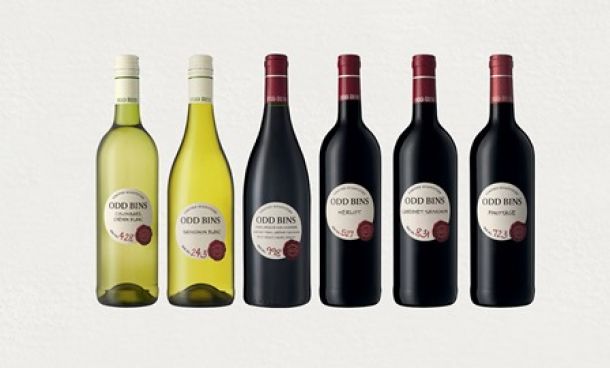Hong Kong falls for SA’s wine
Over the past seven or eight years, Hong Kong has become the world’s largest wine auction market. Annual turnovers in the special administrative region exceed the total of London and New York combined.
This is largely the result of the prescience of the region’s authorities, who scrapped all duties on wine over a two-year period about eight years ago to make Hong Kong a tax-free wine trade zone.
Without the former British colony’s appetite for luxury, and without its access to the market of the mainland, the move would simply have seen an uncompensated loss to the fiscus.
However, the sheer scale of the business, which comes with state-certified, temperature-controlled warehousing and has seen an increase in mainland visitors arriving to access their duty-free stocks (there are still punitive wine tariffs elsewhere in China), has created a self-sustaining boom.
Taxes paid by auction houses on this new profit stream probably cover whatever duties have been lost.
I was in Hong Kong recently to present a line-up of SA’s best wines to top clients of Christie’s Asia. For many, it was their first exposure to Cape wine — of any kind – and it is fair to say they were blown away.
To make the evening more interesting, the first part was conducted as a blind tasting in which a series of paired wines came to the table and guests were asked to indicate their preferences. One of each of the pairs was South African, the other an international benchmark (mainly, but not exclusively, French).
After the group had scored, the bottles were revealed. SA comfortably held its own against a line-up that included such vinous classics as Le Montrachet from the Marquis de Laguiche’s vineyards, Pavillon Blanc from Chateau Margaux, Jaboulet’s Hermitage La Chapelle and Penfolds Grange.
To be fair, if I had tallied all the votes for the non-South African wines, the internationals would probably have had the edge — but it would have been a close call.
However you look at it, SA acquitted itself brilliantly and at one level, emerged victorious – inasmuch as our wines have now invaded the consciousness of a group of key wine buyers and cannot easily be dismissed.
SHOWING OFF
Wines are not necessarily bought because the consumption of them is a pleasure, but because they can be shared — and shown off
Sadly, this does not mean that a couple of dozen fine-wine buyers, exposed for the first time to the achievements of the Cape wine industry, are going to singlehandedly transform Hong Kong into a high-volume market for SA’s premium wineries.
In discussion afterwards with senior members of the Christie’s team including Jasper Morris MW — probably the world’s leading Burgundy expert and also the senior buyer for Berry Brothers in London — it became clear that one of the driving dynamics of the Hong Kong market is the quest for visible luxury.
Wines are not necessarily bought because the consumption of them is a pleasure, but because they can be shared — and shown off. One of the guests at the tasting — a Chinese who had been educated in England — discussed (with some embarrassment) the current fashion of ordering excessive amounts of food when entertaining guests.
He said when he first returned to the mainland, he used to order "110% of what was required — just to be safe". He swiftly found himself rebuked. Gross excess was the only way to communicate that your resources were limitless.
For Cape wine, this poses a short-term problem: if your guests don’t recognise the value of what you are serving, there’s no point in offering it.
There are two transformations required to change this: South African wine needs wider international recognition and wine enthusiasts in Hong Kong have to begin drinking wine for the pleasure of what is in the bottle. Both are happening, though sadly, too slowly to make an immediate difference.
Identifying influential people in the region to start leading the change, and communicating with them directly, may be the best way forward.
News Category
- International retailers
- On the move
- Awards and achievements
- Legislation
- Wine and liquor
- Africa
- Going green
- Supplier news
- Research tools
- Retailer trading results
- Supply chain
- Innovation and technology
- Economic factors
- Crime and security
- Store Openings
- Marketing and Promotions
- Social Responsibility
- Brand Press Office
Related Articles

Makro secures exclusive rights to SA’s most sou...

Checkers adds 41 new wines to Odd Bins range

With petrol at almost R20 a litre, food prices ...

Petrol price shocker for South Africa


